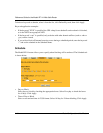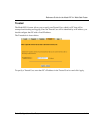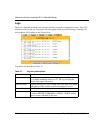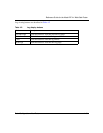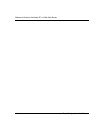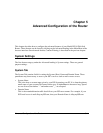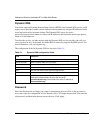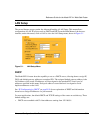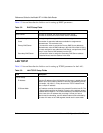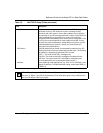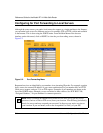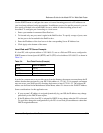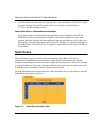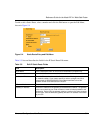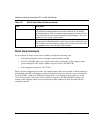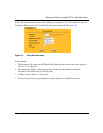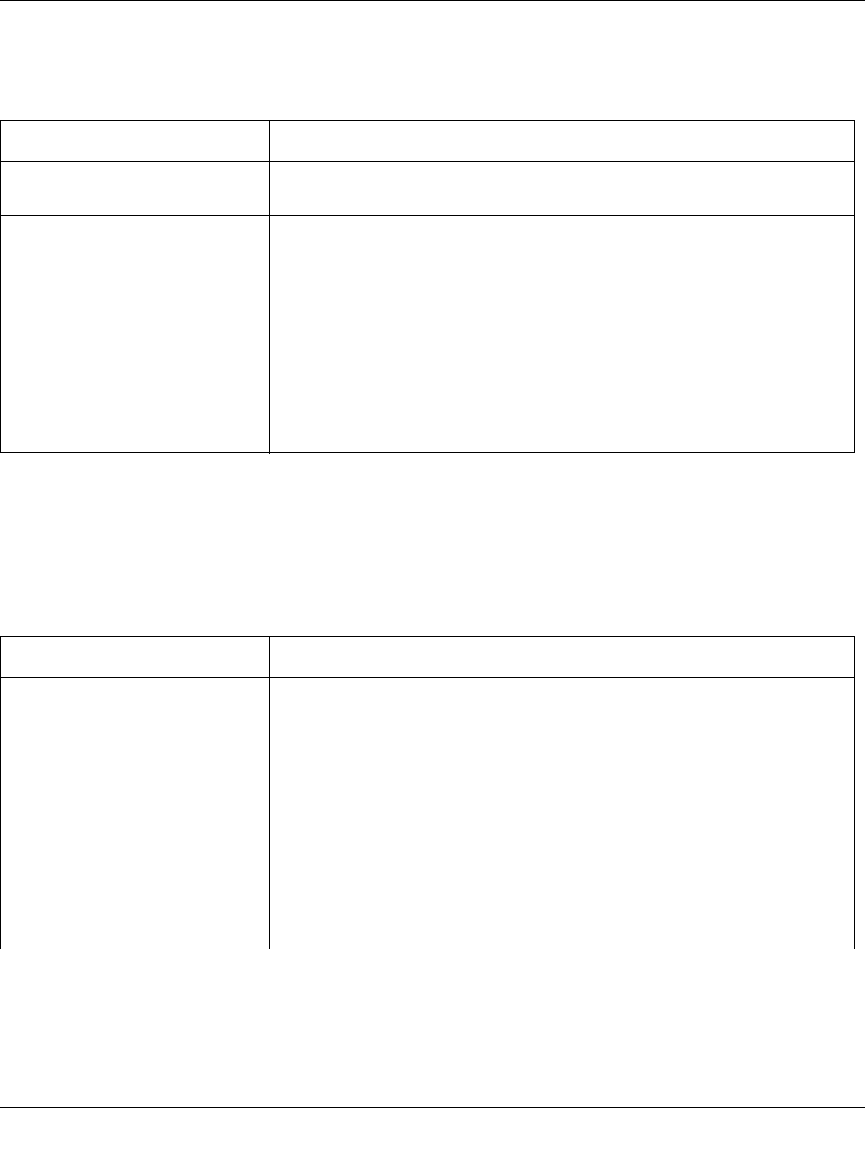
Reference Guide for the Model RP114 Web Safe Router
5-4 Advanced Configuration of the Router
Table 5-2 lists and describes the fields to use for setting up DHCP parameters..
LAN TCP/IP
Table 5-3 lists and describes the fields to use for setting up TCP/IP parameters for the LAN...
Table 5-2. DHCP Setup Fields
Field Description
DHCP Server: If this box is checked, the router acts as a DHCP server.
If this box is cleared, the router’s DHCP server is disabled.
Pool Starting Address The beginning of the range of IP addresses to assign.
Count The number of sequential addresses available for assignment to
attached hosts. The maximum is 32.
Primary DNS Server If you want the router to provide the Primary DNS Server address to
attached hosts, enter the DNS address in this field. If this field is 0.0.0.0,
the router assigns its own address as DNS Server, and performs a DNS
Proxy if it can obtain a DNS address from the ISP.
Secondary DNS Server If you want the router to assign the Secondary DNS Server address
to attached hosts, enter the address in this field.
Table 5-3. LAN TCP/IP Setup Fields
Field Description
TCP/IP Setup:
IP Address Enter the IP address of the LAN interface of the router in dotted-decimal
notation (four 8-bit numbers, between 0 and 255, separated by periods,
for example, 192.168.0.1). Every device on the TCP/IP network must
have a unique IP address.
IP Subnet Mask An IP address consists of two parts, the network ID and the host ID. The
IP Subnet Mask specifies the network ID portion of the address, written
in dotted-decimal notation. The router automatically calculates this mask
for the class of the IP address that you assign. Unless you have a
special need for subnetting, use the default subnet mask calculated by
the router. All hosts on the LAN segment should use the same mask.



